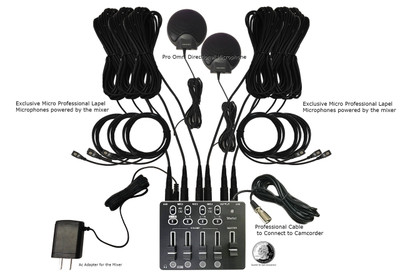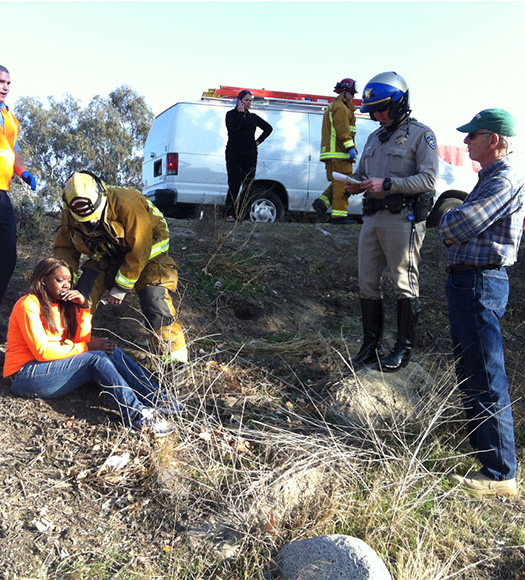The Significance of Legal Video Clip Depositions in Modern Legal Solutions: What You Need to Know
Legal video depositions have become necessary in today's legal landscape. They offer a multidimensional view of witness testaments that conventional transcripts simply can not match. By capturing both non-verbal and spoken interaction, these depositions enhance the general understanding of a witness's reliability. The effectiveness of video depositions pivots on different factors, including conformity with legal criteria and best practices. Exploring these elements exposes their real importance in contemporary lawful solutions
What Are Lawful Video Depositions?
Legal video depositions act as a crucial tool in the lawsuits procedure. They involve taping witness statements in a video format, capturing both non-verbal and spoken communication. This technique enables attorneys to document the temperament, expressions, and reactions of witnesses, offering a richer context for the statement. Typically carried out in a controlled setting, these depositions are led by attorneys that ask inquiries while a stenotype reporter records the dialogue. The resulting video can be important for trial prep work, as it allows lawyers to assess the trustworthiness of witnesses and improve their approaches. In addition, lawful video clip depositions can be made use of in different lawful contexts, ranging from civil disputes to criminal cases. The auditory and aesthetic elements of video depositions improve the discussion of proof, making it an essential part in the contemporary lawful landscape. In general, they add considerably to the performance and efficiency of legal process.

Benefits of Video Clip Depositions Over Traditional Approaches
Video clip depositions offer numerous benefits compared to conventional methods of taking witness statements. One substantial advantage is the ability to record both audio and visual components, providing a more thorough record of the witness's statements. This double layout boosts quality and enables lawful specialists to reference details nuances during trial preparation. Furthermore, video depositions assist in remote engagement, making it much easier for witnesses that may be unavailable for in-person looks because of geographical constraints or health issues.Moreover, video depositions can quicken the overall deposition procedure, lowering the moment and expenses connected with traveling and logistics. They likewise boost access, as videotaped depositions can be conveniently shared among lawful groups and referenced at any moment. This benefit contributes to better situation monitoring and preparation. In general, video clip depositions stand for a contemporary, reliable approach to collecting witness testaments, lining up with the advancing requirements of the legal profession.
The Role of Body Movement and Tone in Testimonies

In lawful video clip depositions, body language and tone play important duties in sharing a witness's reliability and dependability. Nonverbal hints can offer insights right into a witness's mood, affecting how their testament is perceived. Understanding the influence of these aspects is vital for jurors and lawyers alike when examining the reliability of a testament.
Nonverbal Interaction Insights
While verbal interaction is usually highlighted in legal testimonies, nonverbal signs such as body movement and tone play a necessary function in communicating reliability and emotion. Onlookers of depositions might keep in mind that a witness's stance, gestures, and face expressions can greatly affect understandings of integrity. As an example, consistent eye contact might signal self-confidence, while preventing gaze might suggest dishonesty or discomfort. The tone of voice-- its pitch, quantity, and rate-- can give sensations of sincerity or uncertainty. Attorneys need to be in harmony with these nonverbal signals, as they usually provide important context that matches talked words. Recognizing these subtleties can enhance the efficiency of depositions and affect the outcome of legal proceedings.
Emotional Tone Influence
The emotional tone communicated throughout lawful testimonies significantly affects exactly how a witness is viewed. Body movement, vocal inflections, and faces play crucial functions fit the narrative of a testament. A witness exhibiting self-confidence with stable eye get in touch with and a calm tone can impart a sense of reliability and interaction. On the other hand, signs of anxiety, such as fidgeting or an unstable voice, might lead to uncertainty concerning their account. The nuances of emotional expression can influence the interpretation of truths, making it crucial for lawyers to acknowledge these signs. In video depositions, the acoustic and aesthetic parts integrate, emphasizing the relevance of psychological tone in communicating genuineness and reliability within the legal procedure.
Credibility and Reliability
An important element in establishing trustworthiness and dependability throughout testaments depends on the witness's body movement and intonation. this page Onlookers commonly rely upon non-verbal cues-- such as eye contact, posture, and motions-- to assess a witness's genuineness. A witness that preserves eye contact and displays open body language might be perceived as more trusted and straightforward than one that prevents eye call or shows up shut off. Furthermore, tone of voice plays a vital role; a steady, calm tone can strengthen the integrity of the statement, while changes in pitch or volume may raise uncertainties. Eventually, the combination of body language and vocal tone substantially influences how a witness's statements are obtained and analyzed in a legal context.
Best Practices for Performing Video Clip Depositions
Performing video clip depositions calls for mindful preparation and implementation to assure a clear and reliable presentation of testament. It is crucial to choose a peaceful, well-lit location to lessen interruptions and protected optimal video clip quality. The tools ought to be examined beforehand, consisting of video cameras, microphones, and illumination, to stay clear of technological issues during the deposition.Next, events involved need to review the layout and procedures ahead of time, making certain that every person recognizes their functions. The deponent needs to be briefed on the process, consisting of how to respond plainly and concisely.Additionally, maintaining an expert attitude throughout the session is important. This includes avoiding speaking over each other and verifying that all inquiries are directed appropriately. It is crucial to record the deposition in a style that enables for simple playback and review, maintaining the stability of the testimony for future usage.
Lawful Factors To Consider and Compliance Issues
How do legal considerations and compliance issues impact the effectiveness of video depositions? Lawyers must navigate a complex landscape of regulations, guaranteeing that video depositions adhere to jurisdictional rules and standards. Conformity with regulations worrying personal privacy, approval, and videotaping approaches is crucial. Obtaining specific approval from all celebrations involved is essential to stay clear of legal repercussions.Additionally, the admissibility of video clip proof in court can hinge on conformity with step-by-step demands. Guaranteeing that the equipment made use of satisfies technical criteria is likewise important, as low quality can undermine the deposition's reliability.Moreover, lawyers need to be aware of any kind of details state legislations that govern video clip depositions, as these can vary substantially. Failure to address these factors to consider can not only jeopardize the honesty of the deposition but additionally impact the general instance method, ultimately impacting the customer's legal end results.
Exactly How Video Clip Depositions Impact Court Understanding
While video depositions can work as powerful devices in legal proceedings, their impact on jury perception is substantial. The acoustic and visual aspects of video clip recordings offer jurors with a more complete understanding of witness disposition, credibility, and psychological actions. This multimedia approach can boost the jurors' ability to evaluate the integrity of testament contrasted to conventional text-based transcripts.Moreover, video clip depositions permit jurors to observe body language, tone of voice, and facial expressions, every one of which can influence their analysis of the witness's statements. The existence of a witness on screen can humanize them, fostering empathy and connection, which might persuade jurors' point of views. Conversely, a witness that shows up incredibly elusive or untrustworthy on video may bring about unfavorable assumptions that affect a court's choice. Ultimately, the dynamic nature of video depositions plays a vital role fit just how jurors analyze evidence and reach their judgments.
The Future of Video Clip Depositions in Legal Practice
As innovations in technology remain to improve the lawful landscape, the future of video clip depositions is poised for considerable advancement. Advancements such as fabricated knowledge, digital fact, and boosted video clip conferencing devices are expected to enhance the deposition procedure and boost accessibility. Attorneys may make use of AI-driven analytics to analyze witness credibility and instance toughness much more effectively.Moreover, the combination of digital reality might enable juries to experience immersive simulations of depositions, offering deeper context and understanding. In addition, the pattern toward remote depositions is most likely to linger, using greater flexibility for clients and lawyers alike.As remote work becomes significantly stabilized, video depositions will likely come to be typical technique, lowering expenses and time restraints connected with traditional approaches. In general, these technological innovations guarantee to improve the effectiveness, performance, and availability of video depositions blog here in lawful practice, inevitably transforming just how lawyers get ready for test.
Often Asked Inquiries
Just How Much Do Lawful Video Depositions Commonly Expense?

Can Video Clip Depositions Be Used in Any Kind Of Type of Situation?
Video clip depositions can be utilized in different sorts of cases, including civil, criminal, and family members law. Their versatility permits lawyers to existing witness testimonies efficiently, adjusting to the specific needs of various lawful scenarios.
What Equipment Is Needed for a Video Clip Deposition?
To perform a video deposition, essential devices includes a high-grade camera, microphone, illumination, and a trusted recording device. In addition, a computer system with editing software may be required for post-production and formatting the last video clip.
The length of time Does a Typical Video Deposition Last?
A common video deposition lasts between two to four hours, depending on the complexity of the case and the number of questions posed. Extended sessions may occur, but breaks are usually incorporated for participant convenience.

Are Video Depositions Admissible in Court?
Video depositions are generally admissible in court, provided they stick to lawful criteria and rules of proof. Their usage enhances clearness and protects witness statement, aiding in the judicial process during tests and hearings. Lawful video depositions have actually come to be vital in today's legal landscape. Furthermore, legal video depositions can be made use of in numerous legal contexts, ranging from civil disputes to criminal cases. In addition, video clip depositions assist in remote engagement, making it simpler for witnesses who might be not available for in-person appearances due to geographical restraints or wellness issues.Moreover, video depositions can accelerate the general deposition procedure, minimizing the time and expenses associated with traveling and logistics. Making sure that the equipment made use of fulfills technical requirements is likewise crucial, as poor top quality can weaken the deposition's reliability.Moreover, attorneys have to be conscious of any details state legislations that control video depositions, as these can differ considerably. Additionally, the fad toward remote depositions is most likely to persist, using greater adaptability for customers and attorneys alike.As remote job becomes increasingly stabilized, video clip depositions will likely end up being conventional method, reducing costs and time restraints connected important site with standard methods.